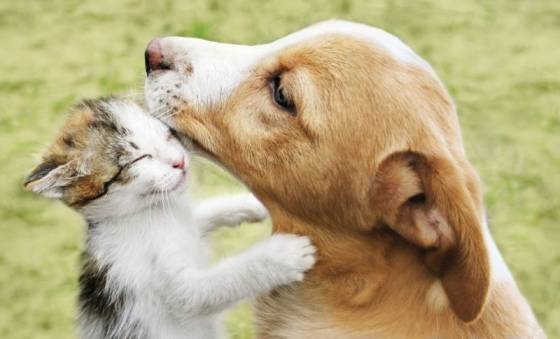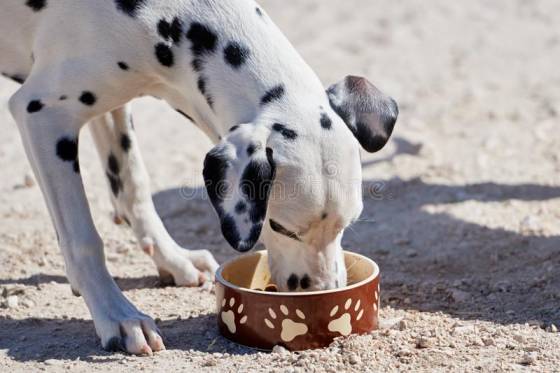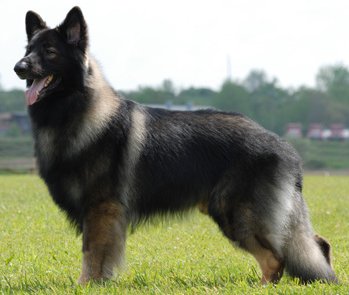You may think that it is only professional sports players that are side-lined with injuries. But despite how much your furry friend runs around during the day and playfights with other pups, they are also at risk from injuries.
Connect with a verified veterinarian in minutes. Licensed vets are available 24/7 to answer your questions. No need to worry about your furry family member.
In particular, dogs can suffer from cruciate ligament injuries and it is important that you recognize the symptoms of them so that they can receive the right treatment they need. Let’s take a look at what an ACL and CCL injury is, the symptoms and the appropriate treatment for such an injury.
What is an ACL and CCL Dog Injury?
The first thing you may be wondering is what is an ACL and CCL injury? Is there a difference between them? Let’s start by saying that ACL stands for anterior cruciate ligament. This is an important structure in the knee for humans. CCL stands for cranial cruciate ligament and this is essentially the same thing but it is found on your furry friend. Again, the CCL is essential for movement in the knee. ACL and CCL are used interchangeably to refer to the same structure in your pup’s knee.
Of course, just like humans, dogs can injury their CCL too. For example, a lot of these injuries happen with strenuous exercise or sudden accidents. For instance, vets see a lot of cruciate ligament ruptures.
This is when the joint is flexed and there is too much rotation of the tibia in the knee.
Are there Signs of a CCL Injury?
If your dog is suffering from a CCL injury, you are going to know about it. There will be several signs that you can look out for. If you spot anything out of the ordinary, make sure that you arrange an appointment with your veterinarian. They will be able to advise you on whether your pooch has a CCL injury. So, let’s take a look at the signs.
Sudden Lameness
Your pooch will normally bound around happily and be fast on their feet when they are running or playing. However, if they suffer from a cruciate ligament injury, you will notice that they develop a lameness. This can be down to pain and discomfort when they put their foot down. Eventually, they may not want to put this foot down on the ground at all.
For some dogs, lameness may not be present all the time. For example, your pup might be lame for a few days and then be fine for a few weeks. But if it keeps returning, this is definitely a symptom that you should not ignore and may indicate that their knee is still damaged or getting worse. Your four-legged friend might not want to go for their daily walk or playtime and this is when you know something is wrong.
Sitting Down Unusually
We all know how a dog sits down normally. But if you start to notice that your pooch is sitting awkwardly, this can be a sign that they are experiencing discomfort in their knee. For example, they may sit with their legs sticking out to avoid the discomfort. Again, this is a symptom that can come and go during the day. But it is something you should keep an eye on and check out with your veterinarian.
Swelling on the Knee
Have you noticed that your dog’s knee is swollen all of a sudden? This can be a sign of a CCL injury, especially when your dog is demonstrating other symptoms at the same time, such as discomfort and lameness. In addition, it is not uncommon to see scar tissue develop over the knee too. Therefore, compare your dog’s knee with the other one to see if it is bigger in size and swollen. If it is, arrange a vet appointment.
Clicking Sound When Walking
Have you noticed that your dog’s knee is making a clicking sound when they are walking? This is another symptom that you should look out for. If the knee is damaged, this means that more stress will be put on the joint. When the cartilage is torn, this can mean that the knee does not move the way it should be. This can lead to this clicking noise that you are hearing. Unfortunately, it is not just a sound, it is likely that your dog is also experiencing discomfort during this time.
A lot of dog owners realize that their beloved companion is suffering from a CCL injury. It is tempting to see if this damage heals on its own and without having to arrange an appointment at the vet. Unfortunately, this is not the best solution and it will rarely heal without some encouragement. While some scar tissue can start to repair your pup’s knee, this is not going to help them with the lameness they are experiencing. You still have to take your pooch to the vet before you can attempt any treatment at home. This option will be explained by your vet to make sure it is done correctly.

Review symptoms, medications & behavior to keep your pets healthy with a Vet Online in just minutes.
Ask a Vet Live NowAre There Factors That Can Increase the Chances of a CCL Injury?
The truth is, every dog has the risk of developing a CCL injury at some point in their life. But there are some factors that can increase the chances for some furry friends. For example, if your pup has patella laxation, this might mean they are more likely to suffer from a CCL injury during their life. In addition, any dog that is over five years old can start to suffer from weaker and stiffer knees.
This could result in a CCL injury if they have an accident, as the knee is not as strong as it once was.
There may be some breeds that are more susceptible to CCL injuries than others. For example, some pooches might include larger breeds, such as St. Bernard’s, American Staffordshire Terriers, Labrador Retrievers, Mastiffs, Ankita’s and Newfoundland’s. Again, this is only guidance and other breeds can still develop CCL injuries. For example, your dog may be very active and have a lot of energy. This going to lead to more situations where an injury could happen.
Obesity is also a risk factor for CCL injuries. Being overweight and being heavier means that pups are carrying more fat. This is going to put a strain on their body and particularly their knees. This can increase the chances of CCL injuries developing when they are exercising. It is best to re-evaluate your canine’s diet and exercise regime if your vet says that your canine is overweight. Look out for foods that are high in protein and low in carbohydrates. Raw diets are also good for keeping your pooch trim and a healthy weight. If your dog has to lose weight, this will require cutting their food portions every day.
How do Vets Diagnose a CCL Injury?
I order to receive the right treatment for your furry friend, you will have to visit the veterinarian. Arrange an appointment as soon as you can. A vet will use their qualifications and experience to see whether your canine has a CCL injury. This can involve a physical examination, manipulating the joint to see if there is instability, stiffness or discomfort for your pup.
In some cases, the vet will have to conduct x-rays. This is going to allow them to see the knee clearly. They will be able to identify any injuries from the images. Some pups may have a fluid sample taken too. This is going to see if there are any inflammatory changes present. On rare occasions, an arthroscopy of the joint can be done to diagnose a CCL injury.
What is the Treatment for a CCL Injury?
Once you have established that your beloved companion has a CCL injury, you will want to know how to start the treatment process. This is going to make sure that your pooch is back up on their feet and enjoying their daily adventures again. The type of treatment your canine will have will depend on the severity of the injury.
For example, there may be some conservative treatments for your pooch if they have a minor CCL injury. In addition, non-surgical procedures are preferred for pups that weigh less than 30 pounds. Your vet may send your canine home with non-steroidal anti-inflammatory drugs, which can encourage recovery and relieve discomfort your pup is experiencing. In addition, your dog will have to be encouraged to rest and any strenuous exercise will have to be avoided. This means that walks should be postponed and rest should be a priority. Of course, some pooches love to play. So, they may have to be crated for some time during the day to help their CCL injuries recover.
Of course, surgery is also going to be an option for a CCL injury. In particular, this will be the only option if there has been a full tear of the ligament. Often, surgery is recommended over other treatments because it has the highest success rate. It can be the quickest option for recovery for your pooch, as conservative treatments do not always work or have long-lasting effects. There are four types of surgical procedures that will be considered for your canine. This includes CCL replacement surgery. This is a procedure that involves replacing the ligament that has suffered damage. It is replaced with a graft or an artificial ligament. Another option is tibial plateau leveling osteotomy surgery, shortened to TPLO. During this surgery, an experienced veterinarian will adjust the angle of the top of the shin bone. This will be done by cutting the bone and it will be rotated. Then a plate and screws will be used so that it can be stabilized.
The third option is tibial tuberosity advancement surgery or TTA. This is also a surgery that will mean cutting the front of the shin bone and it will be moved forward. It is supported using a plate and screws. The fourth choice of surgery for your furry friend is meniscal surgery. This is going to be a good choice if your canine has suffered from cartilage damage. They are likely to be in some pain and discomfort. This surgery helps by removing the damaged section in the knee. So, this surgery can be key-hole or using a camera to avoid invasive surgery. This can mean that recovery is quicker for your pooch. Normally, exercise will be limited and it should be restricted for around eight weeks after surgery. This is going to give the knee time to adjust from the surgery and recover so that it is strong again. Again, you may have to crate your pup so that you know they are not running around and reversing the effects of their surgery.
Can There Be Future Problems After a CCL Injury?
You may be wondering what happens after surgery. Will your canine return to their normal activities? Will they be plagued by injuries in the future? Most dogs after surgery can make a full recovery. While this can seem like a lot of money and upheaval to your dog’s life, in the long term, it can be the best option.
Conservative treatments can reap short-term rewards. If your beloved companion only has a minor injury, this type of at-home treatment may be enough for them. But it is not always going to be the best choice for all canines. Some conservative treatments simply will not help to repair the knee and it may actually take longer to heal than surgery.
Another thing to consider if your furry friend has conservative treatment is that they might be exposed to degenerative changes. In other words, over time, their knee may be prone to other injuries or they can develop bone spurs and arthritis. This can slow your pooch down and mean they are less mobile than they were before. In addition, the growth of bone spurs can be painful for your canine. The arthritis that ensues can also cause discomfort and limit exercise and playtime.
Connect with a verified veterinarian in minutes. Licensed vets are available 24/7 to answer your questions. No need to worry about your furry family member.

Tom
Tom has always loved to write since he was little - he wanted to be either a writer or a veterinary doctor, but he ended up being a professional writer while most of his works are based on animals. He was born in San Francisco but later moved to Texas to continue his job as a writer. He graduated from the University of San Francisco where he studied biotechnology. He is happily married and a soon to be father!
Review symptoms, medications & behavior to keep your pets healthy with a Vet Online in just minutes.
Ask a Vet Live Now



